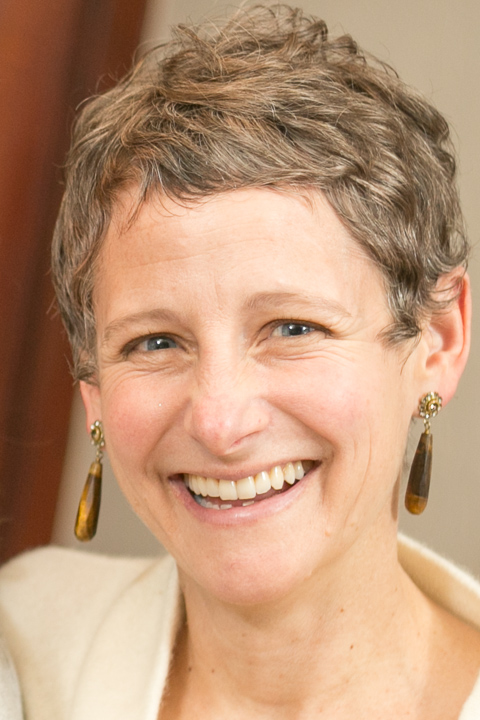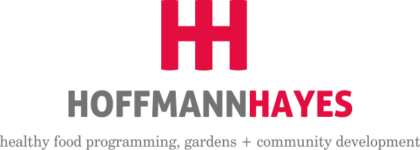In this Food Makers & Changers interview, we get to know Local Food Hero Lauren Baker!

About Lauren:
Lauren Baker, PhD, has over 20 years of experience working on food system issues. Her expertise ranges from research on maize agrobiodiversity in Mexico to negotiating and developing municipal food policy and programs. Lauren currently is working as a consultant with the Global Alliance for the Future of Food, supporting their strategic initiatives and programs. Lauren is on a leave of absence from her work with the Toronto Food Policy Council, leading a citizen advisory group embedded within the City of Toronto’s Public Health Division. She has consulted on farm to fork initiatives and food policy development across Canada, and in Mexico, Cuba, France and the Netherlands. Lauren’s past work includes founding director of Sustain Ontario, Board of Director roles with Everdale Environmental Learning Centre and Food Secure Canada, as well as starting Canada’s first certified organic rooftop farm. Lauren teaches at the University of Toronto and is a research associate with Ryerson University’s Centre for Studies in Food Security. She is the author of Corn meets Maize: Food Movements and Markets in Mexico (2013).
What is one change you’d like to see happen within the food system and why?
I’d like us to align our policies and actions to support health and ecological integrity. Our current health system supports disease treatment over health promotion, and our current economic system prioritizes profit over ecological integrity. We need a deep shift at every level – from the personal to the political and across the food chain – to realign our food system toward health and ecological integrity.
I think food policy councils have an important role to catalyze this shift. Food policy councils engage citizens and stakeholders to advocate for and implement the changes necessary. We need people and groups like food policy councils and their members to take action and demonstrate that change is possible. Then, ideally, policy will follow.
What has been your most meaningful and rewarding work to date?
Over the last few years I have been Chair of the Board of Everdale Environmental Learning Centre. Everdale supports two community farms, in Hillsburgh and the Black Creek Community Farm at Jane and Steeles, as well as a number of amazing programs. My work with Black Creek Community Farm has been the most rewarding work I have done over the last few years. It has been a real privilege to work with the staff and community residents who support the farm to move towards realizing our shared vision for an urban agriculture project that addresses food justice and healthy food access. Another inspiring project Everdale is involved in is the Bauta Family Initiative on Canadian Seed Security. I have a long standing interest in agrobiodiversity and think this project is vitally important.
Where do you stand on local vs organic vs simply eating whole foods? What are your personal priorities when it comes to your own diet?
I care deeply about our local food economy. Local organic gets the gold star in my books. But we need to consider these issues more broadly, including consideration of the complex labour issues. The agroecology practice and literature offers an important approach. We are heavily reliant on the global trade of food, so how do we make the food system as a whole more sustainable, more equitable, more ecological?
As for my family’s diet, Brazil’s 10 steps to healthy diets offer the perfect guide:
- Make natural or minimally processed foods the basis of your diet
- Use oils, fats, salt, and sugar in small amounts when seasoning and cooking natural or minimally processed foods and to create culinary preparations
- Limit consumption of processed foods
- Avoid consumption of ultra-processed foods
- Eat regularly and carefully in appropriate environments and, whenever possible, in company
- Shop in places that offer a variety of natural or minimally processed foods
- Develop, exercise and share cooking skills
- Plan your time to make food and eating important in your life
- Out of home, prefer places that serve freshly made meals
- Be wary of food advertising and marketing
http://www.fao.org/nutrition/education/food-dietary-guidelines/regions/brazil/en/
I would add:
– Celebrate seasonal foods, local farmers and food providers
– Plant and grow food
Do you have any advice for newcomers to the food movement, and how they can make a contribution?
Get involved, attend events, volunteer! The food movement is a very friendly and fun. We need your skills and energy!
What do you daily or weekly to try and be a part of the solution when it comes to creating a sustainable food system?
I am trying to waste less food at home. It is the simple things that make a difference. Planning meals, smaller purchases more regularly, eating leftovers, making stock and soup, using the freezer. There is huge waste across the food system, and we can all do our part to eliminate food waste. I am also planning an edible perennial garden for my front lawn.
What is one of your favourite memories of eating in community?
Oh, there are so many! This is the joy of working on food. Just in the last few months I have eaten an incredible meal at Skywalker Ranch in California during the Real Cost of American Food conference, tasted awesome pizza from the new bake oven at Black Creek Community Farm during a volunteer potluck, reveled my mother-in-law’s annual fiddlehead soup, and tasted delicious momos provided by community caterers in Parkdale through CaterTO at the launch of FoodxWard at City Hall. I also cherish simple family meals with my two sons and husband, especially after a trip to my neighbourhood farmers market. And I’m looking forward to having dinner at Wendell Barry’s farm in Kentucky later this month! Wow – I feel so fortunate for all this beautiful food and the incredible community I am part of.
What issue/passion inspires you to keep doing the work you do day after day?
I am currently involved in a project looking at the health impacts of our food system. The Global Alliance for the Future of Food has commissioned research on this topic. I consider myself very informed about food issues, but the more I learn about the impacts of food production on our health, the more deeply concerned I grow. This is a fundamental issue that has not received the attention it deserves.
This post is part of the HH Food Makers and Changers series, introducing you to friends in the food community that are making a big difference.
